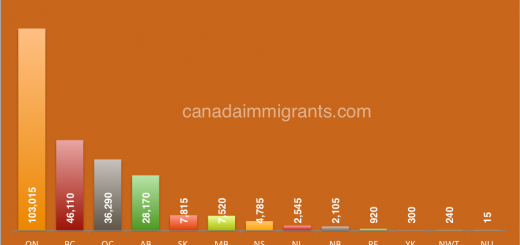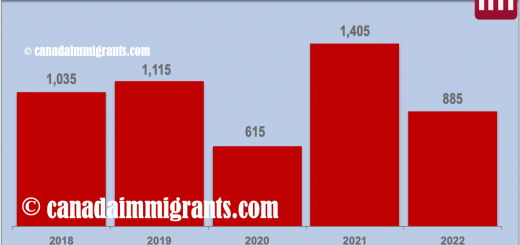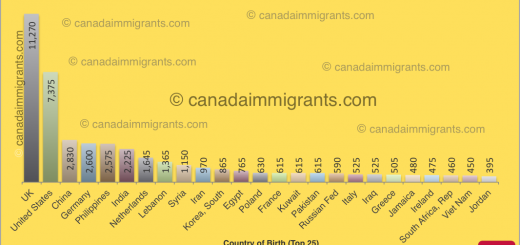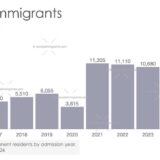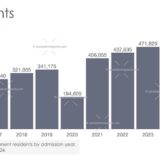Mexican Immigrants to Canada
In 2023, 5,735 Mexicans were admitted to Canada as permanent residents
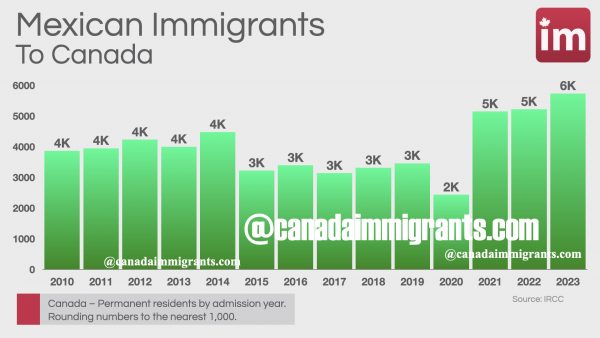
From 2010 to 2023, a total of 55,555 Mexicans were admitted to Canada as permanent residents.
Over the past decade, Mexican immigration to Canada has seen significant growth, driven by economic opportunities, temporary worker programs, and asylum claims. From 2016 to 2021, approximately 1.3 million new immigrants were admitted to Canada, with Mexico ranking among the top source countries for both permanent and temporary residents. The Seasonal Agricultural Worker Program (SAWP) has been a key pathway, bringing around 10,000 Mexican workers annually to Canada for agricultural jobs, with numbers peaking at nearly 24,000 in 2023. Permanent residency has also risen, with a 132% increase from 1998 to 2007, though absolute numbers remain smaller compared to temporary workers. Asylum claims surged from 260 in 2016 to 23,995 in 2023, a 9,000% increase, largely due to visa-free travel policies introduced in 2016, though most claims (about 60%) were rejected, withdrawn, or abandoned. The reimposition of visa requirements in February 2024 aims to curb asylum claims, impacting about 40% of Mexican travelers, while programs like SAWP continue to support economic migration.
2016 Census
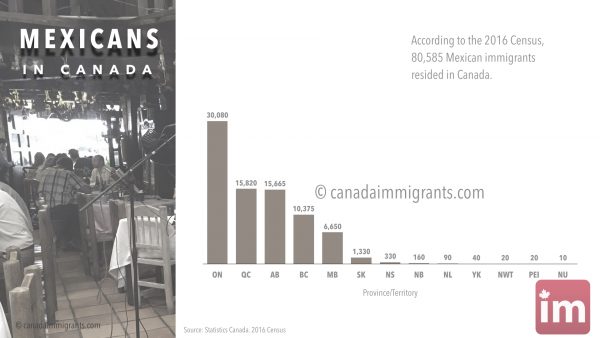
In 2016, 80,585 Mexican immigrants resided in Canada.
Immigration to Canada from Mexico 2001 and 2011
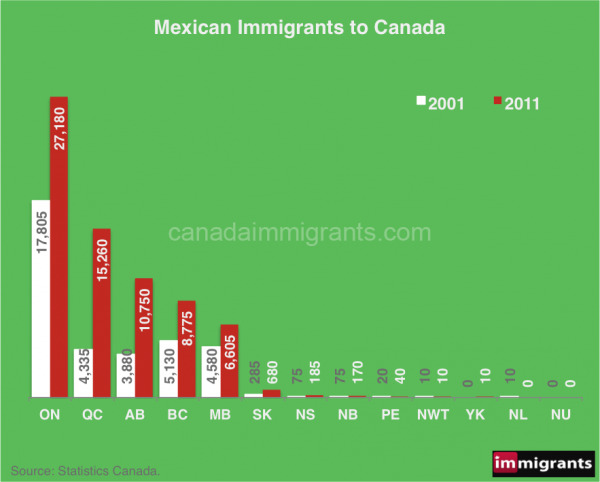
The most recent data (2011) shows that immigrants comprised 20.6% of Canada’s population; in other words, one in five people were immigrants.
The number of immigrants from Mexico increased 92.4% from 36,220 in 2001 to 69,695 in 2011.
In 2011, 39% of Mexican immigrants resided in Ontario. In fact, the Greater Toronto Area was home to 9,200 Mexicans.
In 2011, 22% of Mexicans immigrants resided in Quebec, 15% in Alberta, and 13% in British Columbia.
Note:
We would like to point out that we used data from the National Household Survey (NHS) knowing that its quality is still under criticism because this survey was conducted on a voluntary basis, so its validity, reliability and comparability with other instruments, such as population censuses have become an issue. In fact, before the first release of the NHS results, Statistics Canada issued warnings and cautions when using the NHS data, so use this data prudently.
MEXICANS IN CANADA (2016)

